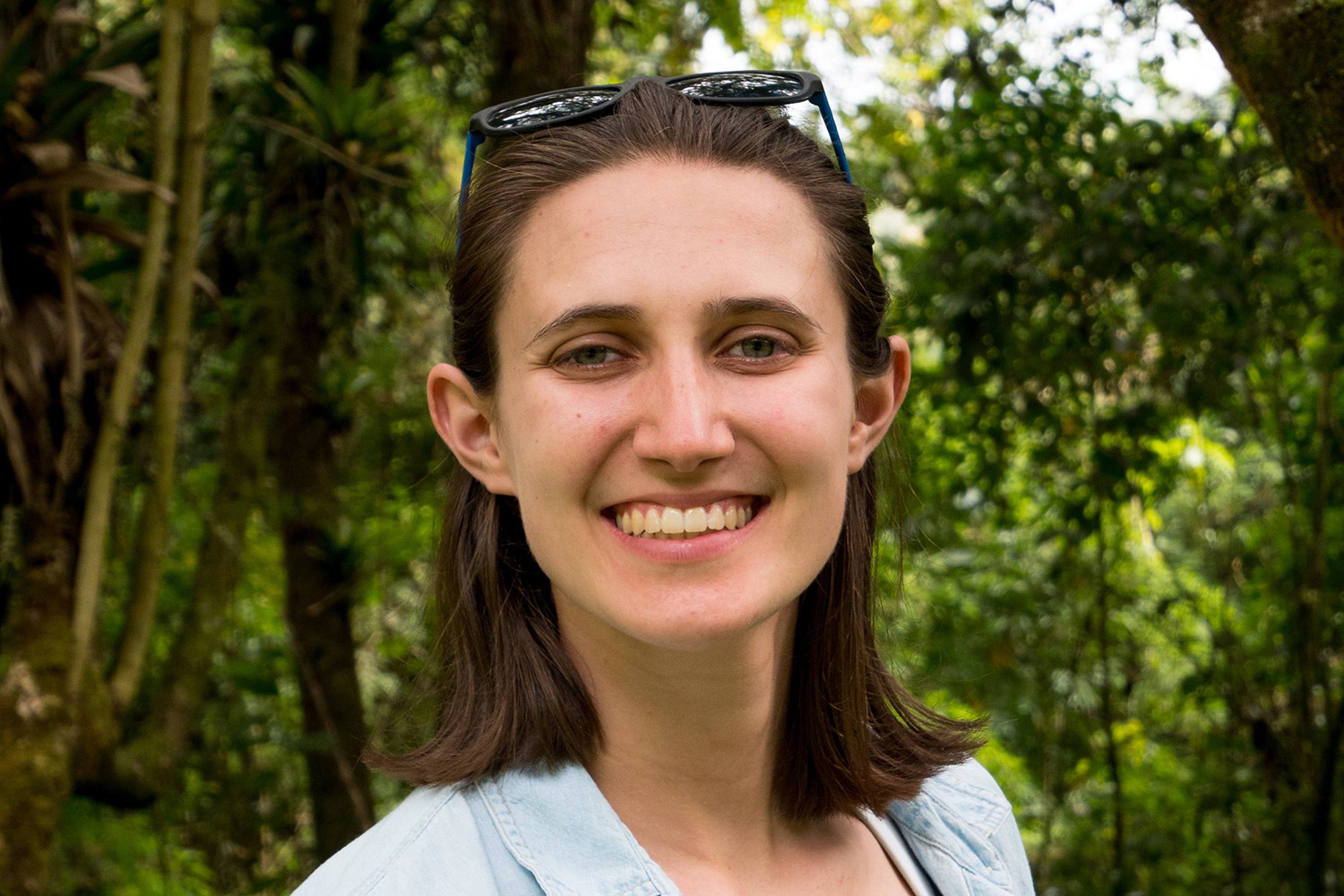Kara Heilemann came to UConn interested in becoming an infectious disease physician. As a dual major in pathobiology and nutritional sciences, she was able to study pathogens and learn the connections between nutrients and disease. Her interests took her beyond the College and into the Department of Chemistry as a 2019 University Scholar researching antimicrobial peptides and the Department of Ecology and Evolutionary Biology conducting fieldwork on biodiversity within fragmented forests. These cross-disciplinary experiences have shifted her interests into wildlife parasitology. Read more about Kara’s experiences as a UConn student.
What attracted you to the UConn College of Agriculture, Health and Natural Resources?
I was originally interested in biology. On a tour of UConn, I happened to see pathobiology on the brochure and was curious as to what the major consisted of. The information session really sparked my interest because of the biological focus on disease and applicability to both humans and animals, as well as the welcoming faculty and students of the small department. I soon found that this strong community atmosphere existed throughout the College of Agriculture, Health and Natural Resources.
What is your major, and why did you choose it?
I am majoring in pathobiology and nutritional sciences. Pathobiology was the best fit for my interests in biology. It has allowed me to really focus on infectious organisms and their role with humans, animals and the environment. I became interested in nutritional sciences because I was curious about the interactions of nutrients in infectious disease and with my focus on parasites, this has become increasingly applicable.
Which one of your UConn activities, internships or jobs was the most memorable? Why?
I spent the summer of 2019 working as a field technician for the Bagchi Lab in the Department of Ecology and Evolutionary Biology. The study I participated in was looking at the effects of forest fragmentation on biodiversity, which meant that I spent the day hiking into the woods and collecting caterpillars. I loved the fieldwork and it confirmed that I wanted to take my interests of infectious disease into ecosystems.
Name two other experiences that have enriched your studies.
I was very honored to have been chosen as a University Scholar. I developed a project in Dr. Alfredo Angeles-Boza’s laboratory in the Chemistry Department that allowed me to become more fully immersed in the research process. I have been able to learn and apply microbiology techniques in order to work on developing potential new antibiotics in the form of proteolytically activated antimicrobial peptides.
Another amazing experience has been through the Alternative Breaks Program in UConn Community Outreach. I went on the 2018 National Parks spring break trip to Moab, Utah, and Tahlequah, Oklahoma for cultural preservation with the Cherokee in 2019. These trips have both taught me, and allowed me, to participate in environmental conservation and cultural awareness in ways that would not be possible in a classroom setting.
What has the biggest challenge in your UConn career?
My biggest challenge has been figuring out which direction to take my interests. I came into UConn on the pre-medical track, interested in becoming an infectious disease physician, but I have come to learn that I love the problem solving, challenges and discovery that research provides. Now I am trying to develop my research niche through parasitology.
When do you expect to graduate? What then?
I expect to graduate in May 2020. After graduation I hope to research the interactions between parasite biology, wildlife health and transmission. I am currently applying to master’s programs to study parasitology in wildlife and ecosystems.
Is there anything else you would like us to know about you?
I love all things outdoors! I enjoy hiking with my dogs and I have an herb and vegetable garden.



